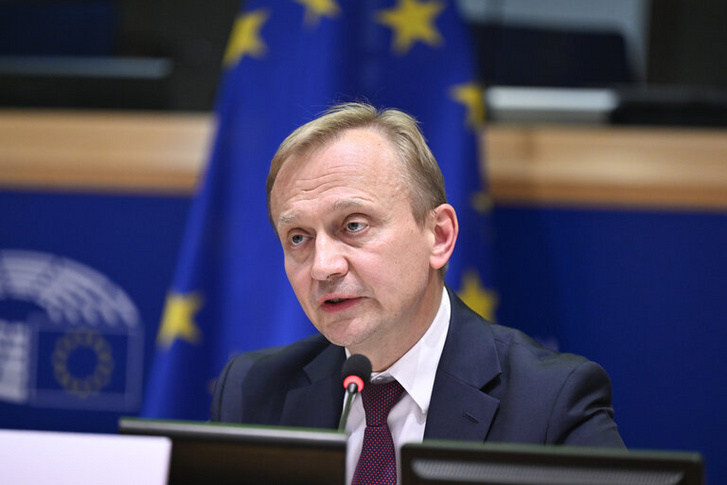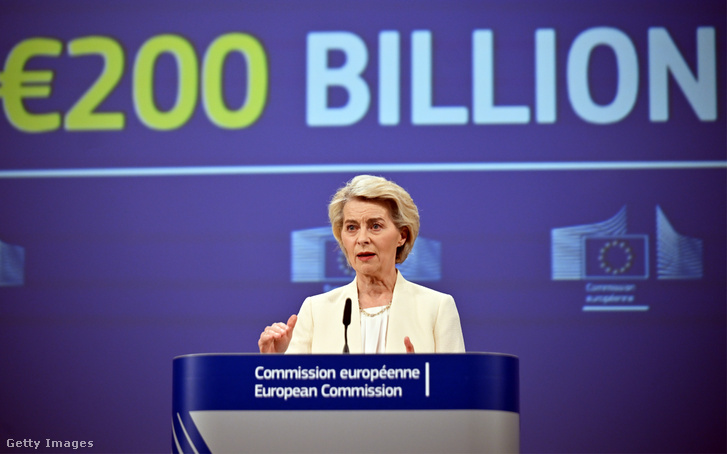
The European Commission is putting the European Union budget on a completely new footing after presenting its draft budget for the period 2028-2034, known in EU jargon as the multiannual financial framework (MFF), on 16 July. The European Commission is proposing to the European Parliament and the member states to increase the size of the budget, partly by increasing member states' contributions and by increasing direct EU funds. The European Commission would continue to spend most of the money on agriculture, but its size would be reduced compared to the previous multiannual financial framework due to other priorities.
On Wednesday afternoon, July 16, the European Commission presented the next draft EU budget starting in 2028, which in EU jargon is called the multiannual financial framework (MFF).
At the press conference presenting the multiannual financial framework, European Commission President Ursula von der Leyen said that a"bigger, smarter, more ambitious" budget was planned that would respond to European challenges and strengthen Europe's independence.
which would be financed partly by increasing member state contributions and expanding the EU's own resources. Member states have so far paid 1.1 percent of their gross national income, GNI, and the commission is now proposing that from 2028, member states contribute 1.26 percent of their GNI to the common fund.
The increase in the size of the budget is needed partly due to new challenges and priorities, as well as to repay the joint EU loan taken out after the coronavirus pandemic.
I would put the budget on a completely new footing.
Von der Leyen and the EU Commissioner responsible for the budget, Piotr Serafin, also emphasized in the European Parliament's Budget Committee that the current system would be completely reformed.
The European Commission proposes to divide the multiannual financial framework from 2028 into three large and two smaller headings:
- National and Regional Funds – €865 billion, 48 percent of the total budget.
- Competitiveness Fund – €410 billion, 23 percent of the total budget.
- Global Europe – €200 billion, 11 percent of the total budget.
- Erasmus+ and AgoraEU programmes – €60 billion, 3 percent.
- Other expenditure, such as debt repayments – 16 percent.
Instead of the current chapters, similar to the recovery fund after the coronavirus pandemic, a separate national envelope would be created for each of the 27 member states, through which the funds would arrive - this is the National and Regional Fund.
It is difficult to find the right one among the various funds available, and there is a lot of overlap between them, which leads to missed opportunities
– von der Leyen argued in favor of the new MFF system, which she believes would be simpler and more transparent than the current one. As she pointed out, instead of the previous 52 funds, there will be a total of 16 funds, which will then be distributed within the 5 chapters listed above.
Most resources will only be available after the rule of law conditions are met
According to the proposal, member states would have to develop their own national plan along European priorities, and then EU funds would become available in exchange for various rule of law reforms.
As he put it, this idea appears throughout the MFF. Parallel to Von der Leyen's press conference, Piotr Serafin, the Commissioner responsible for the budget, assessed the rule of law conditionality in the European Parliament's Budget Committee (BUDG):
The European Commission's position is clear: no one will receive money without respect for the rule of law.
The National and Regional Fund has merged existing funds such as the Common Agricultural Policy (CAP) providing agricultural support, the Cohesion Fund aimed at developing lagging regions, and social subsidies, but according to the draft, EU funds could also be requested from this fund for protection against migration and border management.

At a press conference to present the draft, Von der Leyen said that the European Union would spend 300 billion euros on income support for farmers, while the European Commission would allocate 218 billion euros for the development of lagging regions.
It would also be a new element compared to the previous multiannual financial frameworks to
Member States could take out preferential loans through the EU, which they could then use for EU purposes at home.
Von der Leyen cited energy infrastructure, defense, and strategic sectors as specific examples, the financing of which could be helped by member states through loans taken out through the EU.
The economy of the future would be built with 410 billion, Ukraine would receive 100 billion euros from the EU
Not only member states, but also companies, universities and other institutions can apply for the Competitiveness Fund. As von der Leyen put it, the EU must invest in the technologies of the future, aiming to strengthen research and development, as well as the transition to clean green energies.
The Competitiveness Fund will include, for example, Horizon EU, which can be applied for by researchers and research institutions, and the size of which has been doubled, and which includes digitalization, as well as defense and space research – the latter two being highlighted by both von der Leyen and Serafin. The EU budget would spend a total of €131 billion on defense and space research between 2028 and 2034, which is 5 times more than what is spent on it in the current multiannual financial framework between 2021 and 2027.
The Global Europe Fund would be used for EU activities outside the EU, such as providing aid or support to other countries. The European Commission would allocate a total of €200 billion for this between 2028 and 2034, which is 75 percent more than in the current financial cycle.

This fund would also include enlargement policy, and candidate countries would receive payments through this fund.
while this instrument was topped up with 50 billion euros during the current multiannual financial framework review.
The European Commission President stressed at a press conference that the next multiannual financial framework would be more flexible – 90 percent of the current budget is allocated, but now all three funds have room for manoeuvre. According to Piotr Serafin, the Commission will be able to mobilise up to €400 billion through the crisis management instrument, subject to EP approval.
Crises are no longer the exception, but the rule
– Ursula von der Leyen explained why she believes budget flexibility is needed. She then pointed out that the European Union had been hit by crises one after another during her previous term: first the coronavirus pandemic, then the energy crisis, and then Russia's war against Ukraine.
According to the EP, few, several member states have already indicated their opposition
The European Parliament's rapporteurs, Siegfried Muresan and Carla Tavares, reacted to the European Commission's draft in a statement. According to the two MEPs who will represent the EP in the budget negotiations:
According to the statement, the European Commission's proposal does not provide sufficient resources for competitiveness, cohesion, agriculture, defense and climate protection, while important programs such as agricultural subsidies or cohesion funds would also be reduced - which is why farmers demonstrated in Budapest and Brussels on the day the draft budget was presented.
MEPs therefore demand that the European Commission not abolish proven programmes and the current system, and that the Cohesion Fund and the Social Fund continue to operate as separate funds.
We will not approve a budget that supports fragmented national plans that have no connection to European objectives. Europe needs a common vision, not 27 separate shopping lists. A true EU budget cannot be reduced to the lowest common denominator of national preferences
– said Muresan regarding the National and Regional Fund.
The creation of national funds would reduce transparency and democratic scrutiny of the budget, the EP said. It also criticised the plan for moving the Cohesion Fund to a national fund, saying it could weaken the role of regional and local authorities and give more influence to central governments.
The European Parliament therefore promises to engage constructively but firmly in the budget negotiations.
As we wrote previously regarding the multiannual financial framework, several member states - Hungary and 13 others - indicated before the presentation of the draft that they were opposed to reducing agricultural subsidies, while Germany does not agree with the creation of a preferential EU loan.
and if the member states wanted to accept it in this form, the Hungarian government would veto it.
The new multiannual financial framework must be adopted by 31 December 2027 and must be unanimously supported by all member states, along with a majority in the European Parliament, in order to enter into force in 2028. This means that serious discussions are expected between the member states, the European Commission and the European Parliament over the next two and a half years.

